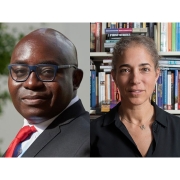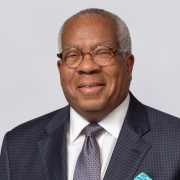Michael Kahana Leads Team Awarded $3.4 million to Study the Treatment of Memory Loss in Patients with Traumatic Brain Injury

A team of neuroscientists led by Michael Jacob Kahana, Edmund J. and Louise W. Kahn Term Professor of Psychology and and Director of the Computational Memory Lab, has launched a $3.4 million project aimed at developing and testing new therapeutics for treating memory loss in patients with traumatic brain injury. The project, sponsored by the U.S. Army Medical Research and Development Command (USAMRDC) and awarded through the Medical Technology Enterprise Consortium, will fund clinical studies in neurosurgical patients at Thomas Jefferson University Hospital, UT Southwestern Medical Center, the University of Texas at San Antonio, Emory University, and Dartmouth University. It will also support basic research on electrophysiological biomarkers of memory at Penn, and technology development at Nia Therapeutics, a team of visionary scientists, engineers, and medical device experts dedicated to improving human memory using safe, secure neurotechnology.
The project builds on a recently completed $24.5 million DARPA-funded study. Kahana, principal investigator of both the completed and present study, explains, “Our prior work demonstrated that stimulating the brain precisely at moments when memory is predicted to fail can boost memory by 18-20 percent.” He continues, “By evaluating the longer-term impacts of closed-loop brain stimulation on both memory and physiology, and also fabricating a prototype of a fully implantable device, this project will bring us closer to a therapy for treating memory loss in patients suffering from traumatic brain injury or neurological disease.” Although the present vision is to develop an implantable technology to treat memory loss, another aim of this effort is to evaluate the potential of decoding memory lapses non-invasively with a net of electrodes placed on the scalp.
Brain stimulation has recently emerged as an effective therapy for Parkinson’s disease, epilepsy, and certain forms of hearing and visual impairments. Researchers are now evaluating the potential use of implanted brain stimulators to treat other indications such as depression and obsessive-compulsive disorders. “Our team’s recent studies demonstrate that closed-loop brain stimulation could provide a life-changing therapy for patients with memory loss,” says Kahana. “The present USAMRDC project hopes to bring that vision closer to reality.”
The views expressed in this news release/article are those of the authors and may not reflect the official policy or position of the Department of the Army, Department of Defense, or the U.S. Government.
About US Army Medical Research and Development Command
The U.S. Army Medical Research and Development Command is the Army's medical materiel developer, with responsibility for medical research, development, and acquisition. USAMRDC produces medical solutions for the battlefield with a focus on various areas of biomedical research, including military infectious diseases, combat casualty care, military operational medicine, medical chemical and biological defense, and clinical and rehabilitative medicine. To find out more about MTEC, visit: https://mrdc.amedd.army.mil/.
About MTEC
MTEC is a biomedical technology consortium collaborating with multiple government agencies under a 10-year renewable Other Transactional Agreement with the U.S. Army Medical Research and Development Command. MTEC is managed by Advanced Technology International. To find out more about MTEC, visit: https://www.mtec-sc.org/.





